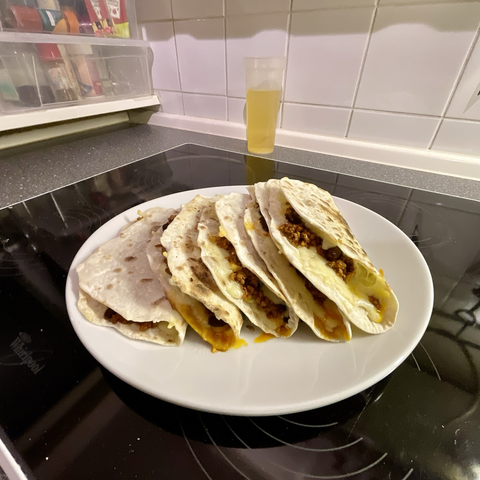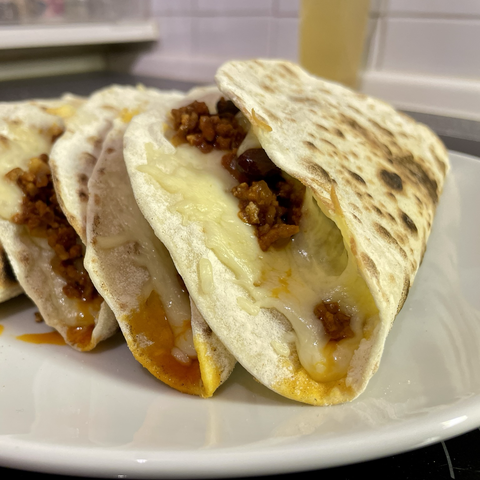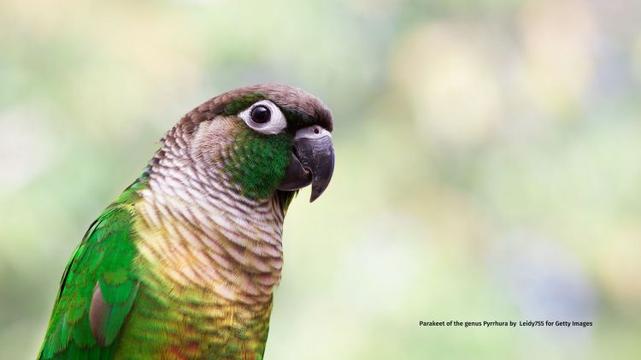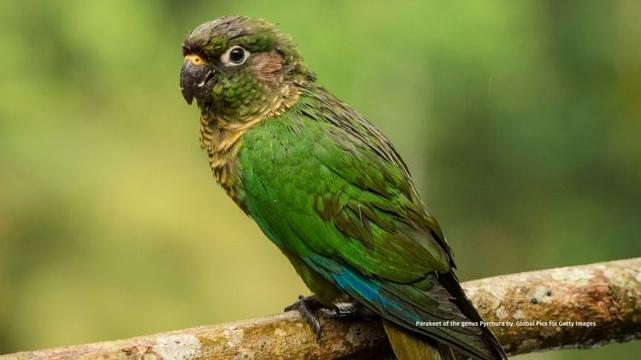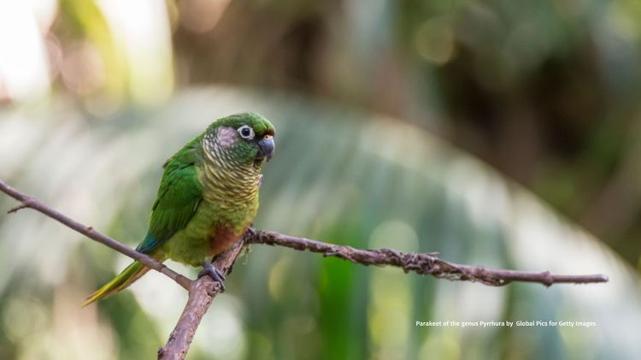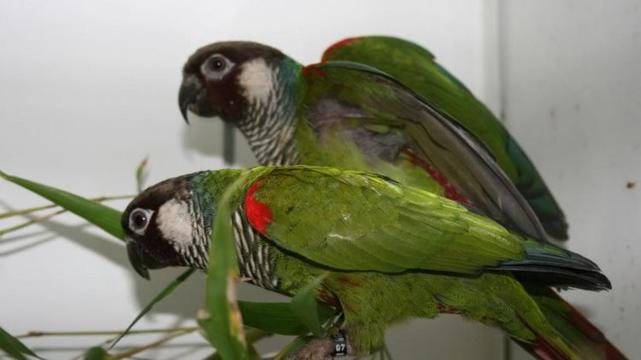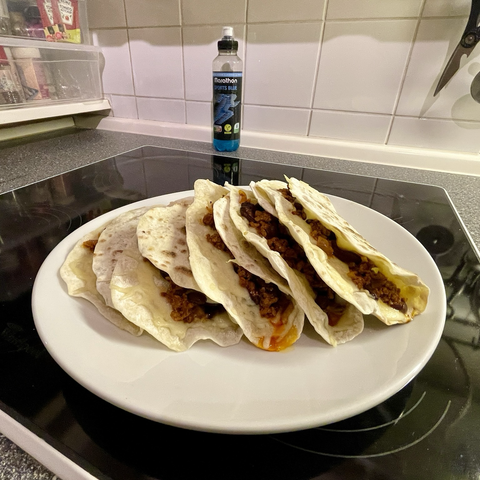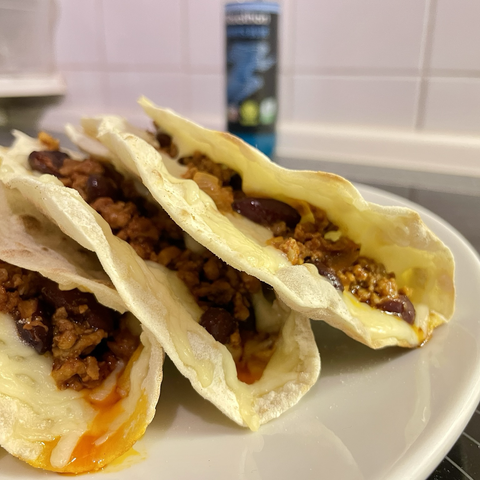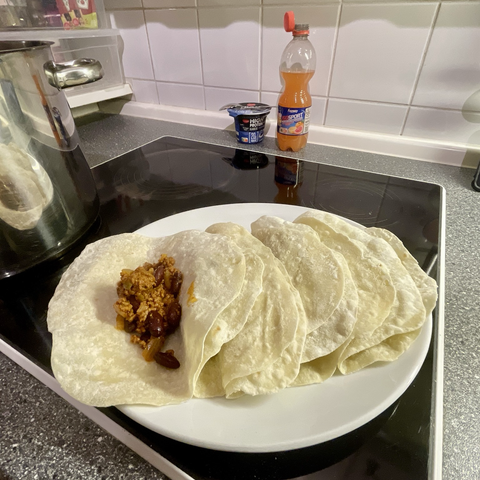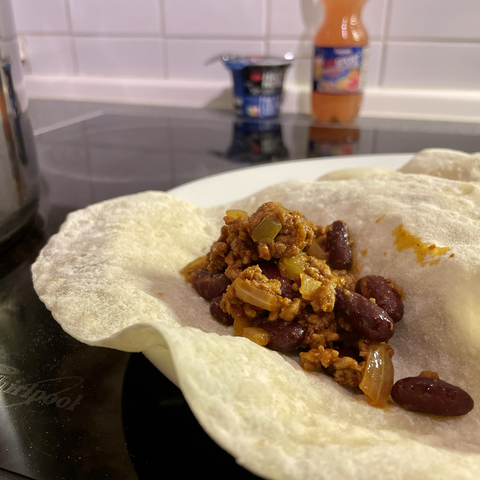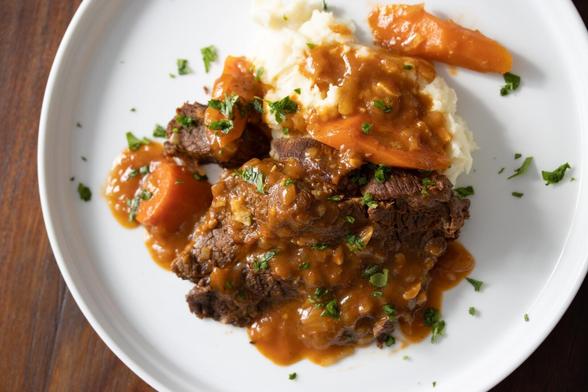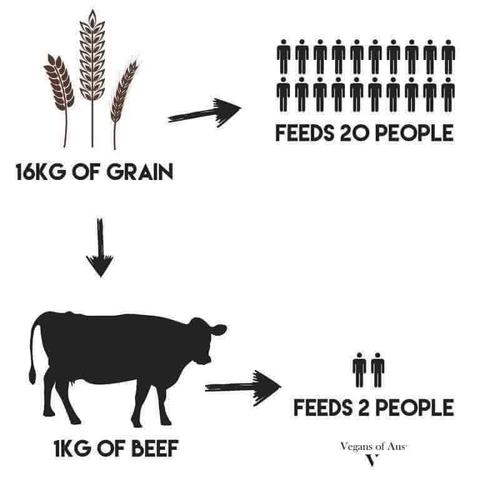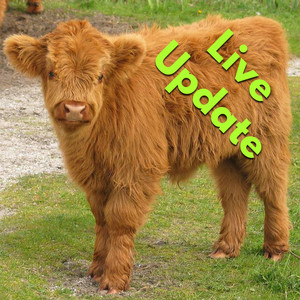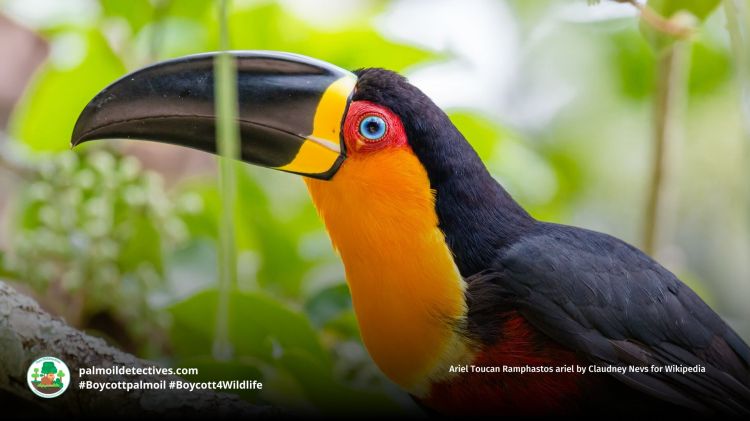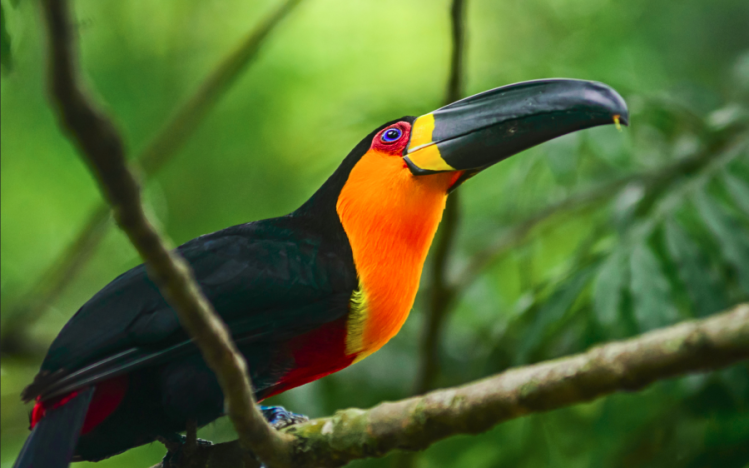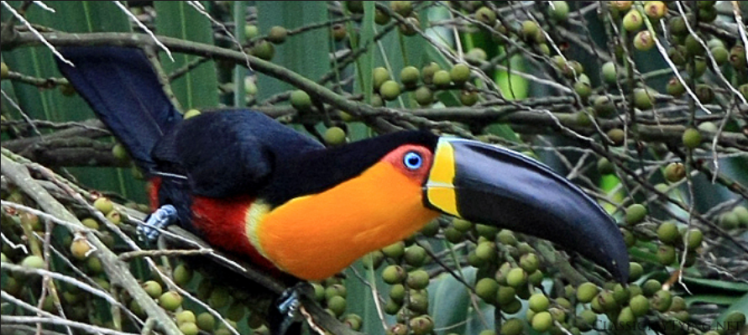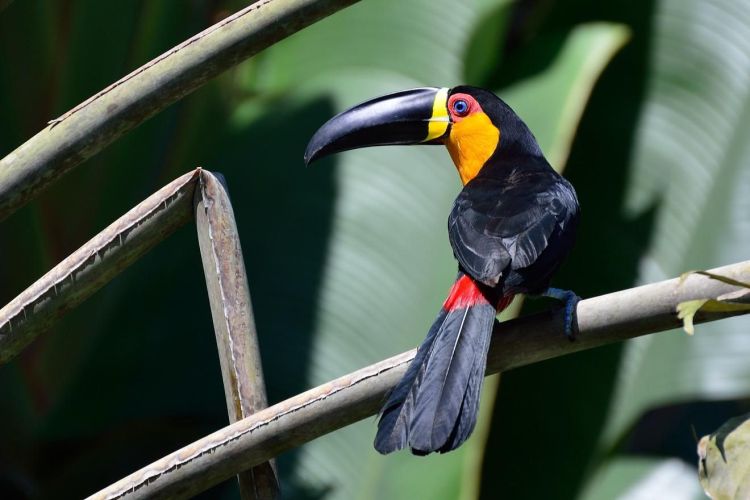Environmental Sustainability o...
Environmental Sustainability o...
Sinu Parakeet Pyrrhura subandina
Sinu Parakeet Pyrrhura subandina
Critically endangered
Location: Endemic to Colombia, specifically the Sinú Valley in the department of Córdoba.
IUCN Red List Status: Critically Endangered (Possibly Extinct)
The Sinu Parakeet Pyrrhura subandina is a magnificent rainbow #bird that may already be lost to the world. With no confirmed sightings since 1949, these vibrant green #parrots—once fluttering through Colombia’s Sinú Valley—teeter on the brink of #extinction. Despite extensive searches, the last known individuals have vanished from their historical range, victims of relentless #palmoil #soy and #meat #deforestation, agricultural expansion, and possibly the illegal pet trade. Their fate serves as a dire warning about habitat destruction in one of the world’s most biodiverse regions. Help all species to survive by being #vegan and #BoycottPalmOil #Boycott4Wildlife
Sinu Parakeets are on a knife-edge of survival in #Colombia 🇨🇴 ravaged by #PalmOil #Soy and #Meat #Deforestation, they may now be lost 💔🙈 Help them and others survive before we never see them again. #BoycottPalmOil 🌴⛔️ #Boycott4Wildlife @palmoildetect https://palmoildetectives.com/2021/03/09/sinu-parakeet-pyrrhura-subandina/
Share to BlueSky Share to TwitterThe spectacularly plumed Sinu Parakeet is critically endangered and is known with certainty only from the Sinú Valley in northern Colombia, where recent searches have failed to find the species and they may be extinct
IUCN Red LisT
Appearance and Behaviour
Sinu Parakeets are striking medium-sized #parrots, measuring about 25 cm in length. Their plumage is primarily green, accented with a deep red belly patch and blue-tinged flight feathers. A maroon-red face and a dull blue and red forehead give them a distinctive look, setting them apart from other Pyrrhura species. Their scalloped grey and buff breast, coupled with a long deep red tail, makes them a stunning sight in #Colombia’s forests.
Highly social, they were often seen in small, noisy flocks, calling to one another with sharp, piercing cries. Their agile movements and strong social bonds helped them navigate the canopy in search of food.
Habitat and Distribution
Historically, Sinu Parakeets were found in Colombia’s Sinú Valley, thriving in subtropical and tropical moist lowland forests, gallery forests, and secondary growth areas. They adapted well to forest edges and plantations, but their dependence on tree cavities for nesting made them particularly vulnerable to deforestation. Today, their habitat has been so extensively destroyed that any surviving population is likely isolated in a tiny, fragmented patch of forest.
Diet
Like most parrots, Sinu Parakeets were primarily frugivorous, feeding on a variety of fruits, seeds, and flowers. They likely played an important role in their ecosystem as seed dispersers, helping maintain the delicate balance of their rainforest home. However, habitat loss has decimated their food sources, further driving their population decline.
Threats
Sinu Parakeets have suffered catastrophic habitat loss, with an estimated 92-98% of their original forest destroyed. The main threats include:
• Palm Oil, Soy and Meat Deforestation: Most of the parakeets’ native forests have been cleared for cattle ranching and palm oil agriculture.
• Habitat Fragmentation: Even where patches of forest remain in the Amazon, they are isolated, making it difficult for populations to recover.
• Trapping for the pet trade – Although not well-documented, other Pyrrhura species are frequently captured for the illegal pet trade, which may have impacted this species.
• Illegal Hunting: There is evidence that small parrots are sometimes hunted for food in rural areas.
• Agrochemical Pollution: Pesticide and herbicide use in nearby agricultural areas may have contaminated food sources.
With no confirmed sightings for decades, it is feared that the species may already be extinct.
Possibly extinct Sinu Parakeet Pyrrhura subandinaTake Action!
The possible extinction of the Sinu Parakeet is a devastating loss to Colombia’s biodiversity. However, hope remains that a tiny remnant population survives, hidden in a last stretch of undisturbed forest. Conservationists continue to search for any sign of these parrots. You can help by:
• Boycotting products that are 100% palm oil-free to avoid contributing to deforestation and biodiversity loss.
• Supporting reforestation efforts in Colombia and across South America.
• Raising awareness about the plight of the Sinu Parakeet and the urgent need to protect their habitat.
• Demanding stronger conservation policies from governments and businesses that contribute to deforestation.
#BoycottPalmOil #Boycott4Wildlife every time you shop.
Support the conservation of this species
Further Information
BirdLife International. 2016. Pyrrhura subandina. The IUCN Red List of Threatened Species 2016: e.T45422401A95151315. https://dx.doi.org/10.2305/IUCN.UK.2016-3.RLTS.T45422401A95151315.en. Downloaded on 16 February 2021.
Birds of Colombia. (n.d.). Sinu Parakeet (Painted Parakeet). Retrieved February 2025, from https://birdsofcolombia.com/pages/sinu-parakeet-painted-parakeet
Loroparque Fundación. (n.d.). Pyrrhura picta subandina (Sinu Parakeet). Retrieved February 2025, from https://www.loroparque-fundacion.org/en/portfolio/pyrrhura-picta-subandina-sinu-parakeet/
Sinu Parakeet Pyrrhura subandina
How can I help the #Boycott4Wildlife?
Take Action in Five Ways
1. Join the #Boycott4Wildlife on social media and subscribe to stay in the loop: Share posts from this website to your own network on Twitter, Mastadon, Instagram, Facebook and Youtube using the hashtags #Boycottpalmoil #Boycott4Wildlife.
2. Contribute stories: Academics, conservationists, scientists, indigenous rights advocates and animal rights advocates working to expose the corruption of the palm oil industry or to save animals can contribute stories to the website.
Mel Lumby: Dedicated Devotee to Borneo’s Living Beings
Anthropologist and Author Dr Sophie Chao
Health Physician Dr Evan Allen
The World’s Most Loved Cup: A Social, Ethical & Environmental History of Coffee by Aviary Doert
How do we stop the world’s ecosystems from going into a death spiral? A #SteadyState Economy
3. Supermarket sleuthing: Next time you’re in the supermarket, take photos of products containing palm oil. Share these to social media along with the hashtags to call out the greenwashing and ecocide of the brands who use palm oil. You can also take photos of palm oil free products and congratulate brands when they go palm oil free.
https://twitter.com/CuriousApe4/status/1526136783557529600?s=20
https://twitter.com/PhillDixon1/status/1749010345555788144?s=20
https://twitter.com/mugabe139/status/1678027567977078784?s=20
4. Take to the streets: Get in touch with Palm Oil Detectives to find out more.
5. Donate: Make a one-off or monthly donation to Palm Oil Detectives as a way of saying thank you and to help pay for ongoing running costs of the website and social media campaigns. Donate here
Pledge your support#animalExtinction #beef #Bird #birds #Boycott4wildlife #BoycottPalmOil #Colombia #CriticallyEndangeredSpecies #deforestation #extinct #extinction #ForgottenAnimals #meat #palmoil #Parrot #Parrots #SinuParakeetPyrrhuraSubandina #SouthAmericaSpeciesEndangeredByPalmOilDeforestation #SouthAmerica #soy #vegan
"Agriculture and Agri-Food Minister Heath MacDonald was on hand for a ribbon-cutting ceremony Wednesday in front of a cooler filled with porterhouse, New York prime and other cuts of Alberta beef at a Costco in an upscale suburb just beyond the western edge of Mexico City."
https://www.cbc.ca/news/world/costco-mexico-alberta-beef-9.6939609
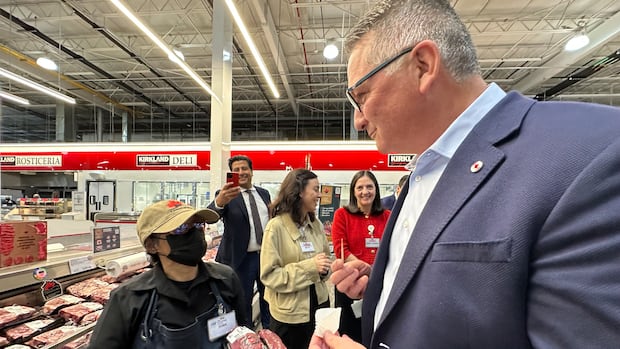
Alberta beef entering Mexico’s Costco market where U.S. cuts once reigned | CBC News
Alberta beef is now stocked in the meat section of Costco Mexico's 41 locations, joining a host of other Canadian products on the shelves of the retail giant in the country. Agriculture Minister Heath MacDonald was on hand for a ribbon cutting in front of a Costco cooler filled with prime Alberta cuts during a weeklong visit to the country.
"Das 'Veggie-Wurst'-Verbot die...
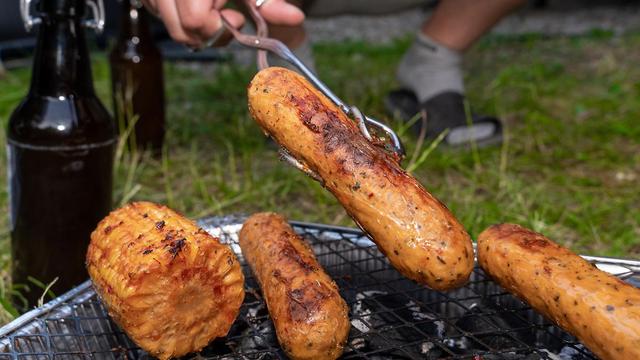
Kampf ums (Ersatz)-Fleisch: "Das 'Veggie-Wurst'-Verbot dient genau einer Gruppe"
Geht es nach dem EU-Parlament, sind Begriffe wie Schnitzel und Wurst künftig Fleischprodukten vorbehalten. Für Verbraucher würde dies Chaos bedeuten, für Veggie-Hersteller eine Katastrophe, prophezeit der Psychologe Hans-Georg Häusel. Einer anderen Gruppe käme ein Namensverbot hingegen gelegen.
Pot roast is one of those meals that makes cooking feel like a true delight—it gives you a chance to step away from the hustle and bustle of the day, take your time in the kitchen, and thoroughly enjoy the process. #recipe #food #cooking #flipboardusergroup #fediverse #dinner #beef #lamb #Potroast
https://www.giangiskitchen.com/pot-roast/?utm_source=flipboard&utm_medium=activitypub
Posted into Giangi's Kitchen Recipes @giangi-s-kitchen-recipes-giangiskitchen
A good reason to stop killing and eating animals and their excretions.
Animal agriculture is the leading cause of deforestation.
🌱🌎
#vegan #grain #beef #govegan #plantbased #sustainability #duurzaamheid #plantaardig #deforestation #worldhunger #hunger #food #plantbasedfoods #supplyanddemand
D.N.A., by BEEF
